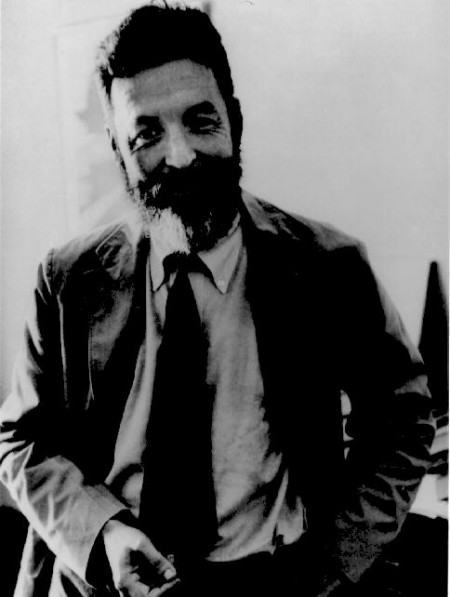Рэндалл Джаррел, "Женщина в Вашингтонском зверинце"
- 04.02.11, 21:19
Сари из посольств минуют меня.
Ткань с луны. Инопланетная ткань.
Они оглядываются на леопарда как леопардихи.
А я...
оттиск на мне, что держит колер
живьём вопреки тьме чисток, эта унылая нулёвка-
-матроска-- в ней я и на работу, и домой, в ней и
в постель, и в могилу-- никаких
жалоб и объяснений моих, и моего шефа-- также,
замначальника отдела, ни его шефа--
лишь я жалуюсь... это покладистое
тело, его полдень не мертвит, и рука чужого не смущает--
оно, величественно отенённое, лишь иссыхающее среди колонн,
волнуется по глади фонтанов-- малое, далёкое, сияющее
в глазах зверей, этих пойманных существ--
как и я, но они не суть клетки подобно мне,--
векующих, притом не знающих, что есть век их,
надёжно хранимых здесь, не знающих смерти, ибо она--
о, клеть моего тела, отворись, отворись!
Мир минует мою клетку-- и не видит меня.
А это приходит отнюдь не ко мне-- к ним,
диким бестиям: к воробьям, клюющим зерно лам;
к голубям, приходующим хлеб медведя; к сарычам,
дерущим мясо в наседающих тучами мухах. ...
Стервятник,
когда зайдёшь по белую крысу, оставленную лисами,
скинь красный свой шлем и чёрные
крылья, что бы ло отеняли меня-- и подойди ко мне как мужчина;
дикий брат, у чьих стоп виляют хвостами белые волки,
ко чьей сольной руке великая львица
крадётся, мурлыча...
Знаешь ты, чем я был--
видишь, каким стал: перемени, перемени!
перевод с английского Терджимана Кырымлы 

The Woman At The Washington Zoo The saris go by me from the embassies. Cloth from the moon. Cloth from another planet. They look back at the leopard like the leopard. And I. . . . this print of mine, that has kept its color Alive through so many cleanings; this dull null Navy I wear to work, and wear from work, and so To my bed, so to my grave, with no Complaints, no comment: neither from my chief, The Deputy Chief Assistant, nor his chief-- Only I complain. . . . this serviceable Body that no sunlight dyes, no hand suffuses But, dome-shadowed, withering among columns, Wavy beneath fountains--small, far-off, shining In the eyes of animals, these beings trapped As I am trapped but not, themselves, the trap, Aging, but without knowledge of their age, Kept safe here, knowing not of death, for death-- Oh, bars of my own body, open, open! The world goes by my cage and never sees me. And there come not to me, as come to these, The wild beasts, sparrows pecking the llamas' grain, Pigeons settling on the bears' bread, buzzards Tearing the meat the flies have clouded. . . . Vulture, When you come for the white rat that the foxes left, Take off the red helmet of your head, the black Wings that have shadowed me, and step to me as man: The wild brother at whose feet the white wolves fawn, To whose hand of power the great lioness Stalks, purring. . . . You know what I was, You see what I am: change me, change me! Randall Jarrell

